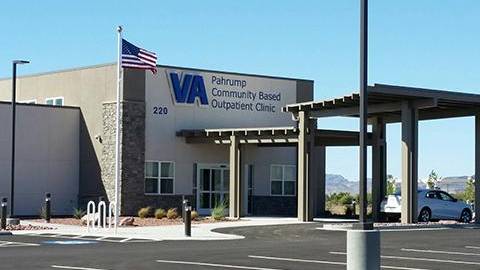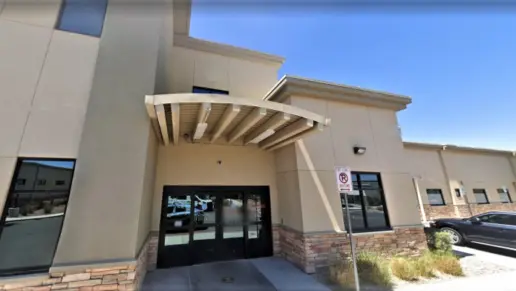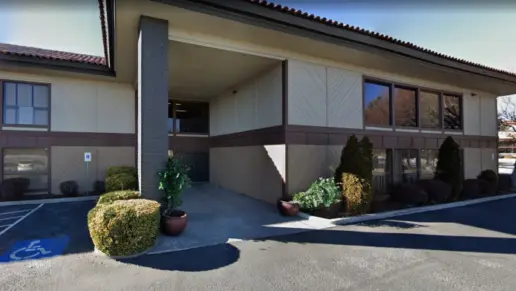I highly recommend New Dawn, their program and help saves lives. They really care about helping people. Thank you!!!
About New Dawn Treatment Center – Intensive Outpatient Program
New Dawn Treatment, located in Reno, Nevada, provides multidisciplinary recovery programs to men and women suffering from substance use disorder. Their programming is backed by science and is evidence-based, with an emphasis on preventing relapse.
New Dawn Treatment- Reno offers residential treatment and dual diagnosis treatment.
The residential program at New Dawn Treatment is an evidence-based program that treats men and women who need a high level of care. Through monitoring, structure, and accountability, this program provides a new routine and the foundational tools that help create positive movement toward recovery. Their treatment methods include cognitive behavioral therapy, acceptance and commitment therapy, mindfulness, dialectal behavioral therapy, 12 Step philosophy, SMART Recovery, and support groups for those focused on sobriety. They believe the whole person must be treated and take steps to address the mental, emotional, physical, and spiritual levels. To support a variety of individuals and what may be most beneficial to each person, services such as yoga, equine therapy, acupuncture, daily exercise, massage therapy, music therapy, and other holistic services are available. Given that many people with substance use disorder also struggle with mental health concerns, those with dual diagnosis are welcome. Mental health treatments through individual therapy and group therapy will be provided.
The dual diagnosis program at New Dawn Treatment- Reno is focused on ensuring the mental health conditions that are creating a negative quality of life for people are addressed. It is understood that many people with addiction struggle with mental health issues, creating a situation called dual diagnosis. By treating the underlying mental health condition concurrently, there is a greater chance of maintaining abstinence and a more positive outlook on life. Conditions like anxiety, depression, and PTSD are treated.
Trauma is often a root cause of addiction, changing the brain and biochemistry. Trauma therapy addresses traumatic incidents through scientifically proven and evidence-based treatment methods that help target the nervous system’s processing centers, which help to create balance mentally, emotionally, and physically.
Latest Reviews
Rehab Score
Gallery
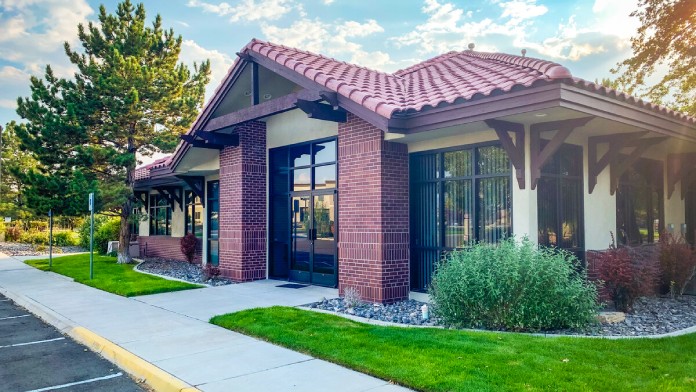
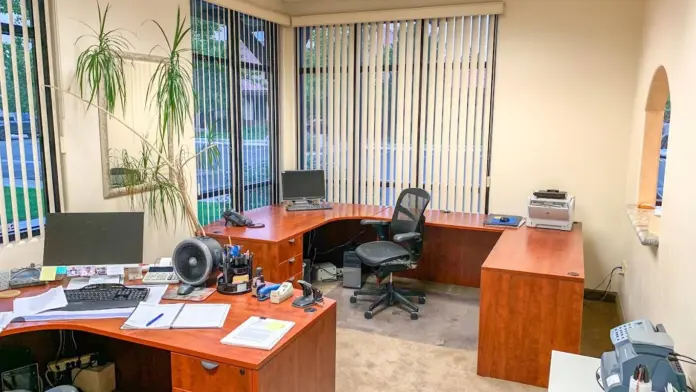
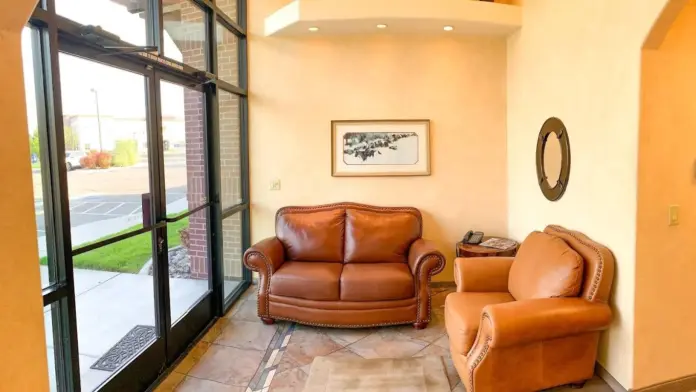
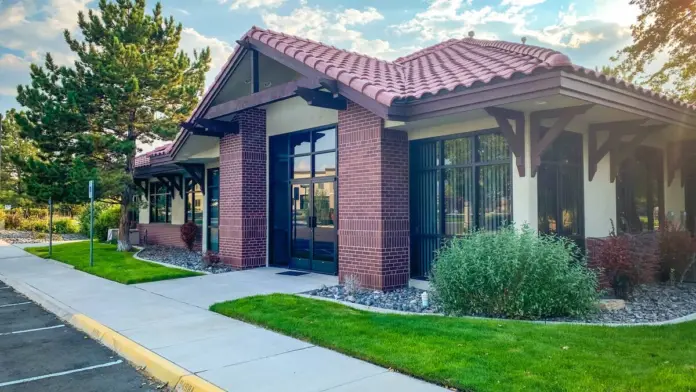

Location
Accepted Insurance
Other Forms of Payment
Private insurance refers to any kind of healthcare coverage that isn't from the state or federal government. This includes individual and family plans offered by an employer or purchased from the Insurance Marketplace. Every plan will have different requirements and out of pocket costs so be sure to get the full details before you start treatment.
Self-pay involves paying for treatment out of your own pocket. You can use savings or credit, get a personal loan, or receive help from family and friends to fund your treatment. If you don't have insurance or your insurance plan doesn't cover a specific program, self-pay can help ensure you still get the care you need.
Financial aid can take many forms. Centers may have grants or scholarships available to clients who meet eligibility requirements. Programs that receive SAMHSA grants may have financial aid available for those who need treatment as well. Grants and scholarships can help you pai for treatment without having to repay.
Military members, veterans, and eligible dependents have access to specific insurance programs that help them get the care they need. TRICARE and VA insurance can help you access low cost or no cost addiction and mental health treatment. Programs that accept military insurance often have targeted treatment focused on the unique challenges military members, veterans, and their families face.
Medicaid is a state based program that helps lower-income individuals and families pay for healthcare. Medicaid covers addiction treatment so those enrolled can use their coverage to pay for rehab. When a program accepts Medicaid the client often pays very little or nothing out of their own pocket.
Addiction Treatments
Levels of Care
Treatments
The goal of treatment for alcoholism is abstinence. Those with poor social support, poor motivation, or psychiatric disorders tend to relapse within a few years of treatment. For these people, success is measured by longer periods of abstinence, reduced use of alcohol, better health, and improved social functioning. Recovery and Maintenance are usually based on 12 step programs and AA meetings.
When you enter drug rehab in Nevada, you receive professional assistance to remove drugs from your body and cease your body's need for the substance. You learn coping strategies and receive support to prevent relapse and enjoy long-term sobriety.
Opioid rehabs specialize in supporting those recovering from opioid addiction. They treat those suffering from addiction to illegal opioids like heroin, as well as prescription drugs like oxycodone. These centers typically combine both physical as well as mental and emotional support to help stop addiction. Physical support often includes medical detox and subsequent medical support (including medication), and mental support includes in-depth therapy to address the underlying causes of addiction.
Substance rehabs focus on helping individuals recover from substance abuse, including alcohol and drug addiction (both illegal and prescription drugs). They often include the opportunity to engage in both individual as well as group therapy.
Programs


Clinical Services
Cognitive Behavioral Therapy (CBT) is a therapy modality that focuses on the relationship between one's thoughts, feelings, and behaviors. It is used to establish and allow for healthy responses to thoughts and feelings (instead of unhealthy responses, like using drugs or alcohol). CBT has been proven effective for recovering addicts of all kinds, and is used to strengthen a patient's own self-awareness and ability to self-regulate. CBT allows individuals to monitor their own emotional state, become more adept at communicating with others, and manage stress without needing to engage in substance abuse.
Dialectical Behavior Therapy (DBT) is a modified form of Cognitive Behavioral Therapy (CBT), a treatment designed to help people understand and ultimately affect the relationship between their thoughts, feelings, and behaviors. DBT is often used for individuals who struggle with self-harm behaviors, such as self-mutilation (cutting) and suicidal thoughts, urges, or attempts. It has been proven clinically effective for those who struggle with out-of-control emotions and mental health illnesses like Borderline Personality Disorder.
Group therapy is any therapeutic work that happens in a group (not one-on-one). There are a number of different group therapy modalities, including support groups, experiential therapy, psycho-education, and more. Group therapy involves treatment as well as processing interaction between group members.
In individual therapy, a patient meets one-on-one with a trained psychologist or counselor. Therapy is a pivotal part of effective substance abuse treatment, as it often covers root causes of addiction, including challenges faced by the patient in their social, family, and work/school life.
Research shows that motivational interviewing is an effective approach for individuals who are unprepared for change. They may be resistant to change or simply insecure in their abilities to make changes. This therapeutic method allows clients to explore their options, reach their own conclusions, and feel empowered to make changes.
Whether a marriage or other committed relationship, an intimate partnership is one of the most important aspects of a person's life. Drug and alcohol addiction affects both members of a couple in deep and meaningful ways, as does rehab and recovery. Couples therapy and other couples-focused treatment programs are significant parts of exploring triggers of addiction, as well as learning how to build healthy patterns to support ongoing sobriety.
Research clearly demonstrates that recovery is far more successful and sustainable when loved ones like family members participate in rehab and substance abuse treatment. Genetic factors may be at play when it comes to drug and alcohol addiction, as well as mental health issues. Family dynamics often play a critical role in addiction triggers, and if properly educated, family members can be a strong source of support when it comes to rehabilitation.
A diet packed with nutrients is crucial for combatting addiction. The right foods give you the energy you need for success in therapy and daily tasks. Nutrition therapy during rehab will help you get these nutrients and learn how to follow a healthy dietary plan long term.
During rehab treatment in Nevada, it may be difficult to put your emotions and thoughts into words. Creative arts therapy provides an alternative form of expression that allows you to communicate your struggles and process your emotions.
Experiential therapy is a form of therapy in which clients are encouraged to surface and work through subconscious issues by engaging in real-time experiences. Experiential therapy departs from traditional talk therapy by involving the body, and having clients engage in activities, movements, and physical and emotional expression. This can involve role-play or using props (which can include other people). Experiential therapy can help people process trauma, memories, and emotion quickly, deeply, and in a lasting fashion, leading to substantial and impactful healing.
Individuals who are significantly dependent on nicotine can use nicotine replacement therapy to break this dependence. It relieves withdrawal and prevents cravings, so your body can slowly adjust to less and less nicotine until you're free of it.
Amenities
-
Yoga Studio
-
Residential Setting
-
Private Rooms
Accreditations

The Commission on Accreditation of Rehabilitation Facilities (CARF) is a non-profit organization that specifically accredits rehab organizations. Founded in 1966, CARF's, mission is to help service providers like rehab facilities maintain high standards of care.
CARF Accreditation: Yes
Accreditation Number: 296438

State Licenses are permits issued by government agencies that allow rehab organizations to conduct business legally within a certain geographical area. Typically, the kind of program a rehab facility offers, along with its physical location, determines which licenses are required to operate legally.
State License: Nevada
License Number: 340039BP

LegitScript has reviewed New Dawn Treatment Center – Intensive Outpatient Program as part of their certification program, and has determined that it meets the LegitScript standards for legality, safety and transparency.
LegitScript verified in
Contact Information
9498 Double R Blvd
STE A
Reno, NV 89521







